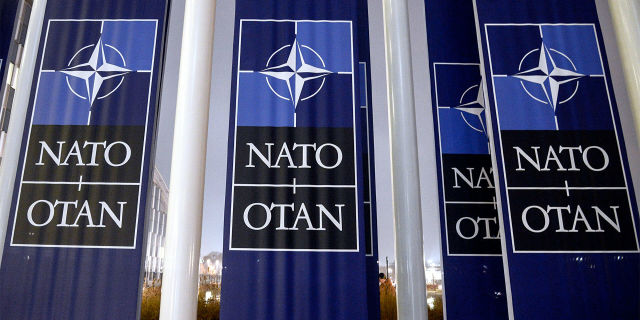NATO's northward expansion risks turning Europe into a new powder keg
The decision of Finland and Sweden to join NATO threatens the security not only of Europe, but also of the whole world, writes Global Times. The author recalls the "ace" in Russia's sleeve and advises the West not to aggravate the situation.
"Finland should immediately apply for membership in NATO," Finnish President Sauli Niinisto and Prime Minister Sanna Marin said on Thursday. Sweden will do the same on Sunday.
After expanding to the east, NATO is now moving north, and this could turn Europe into a new powder keg.
The term "Finlandization", which refers to the policy of strict neutrality that Finland adhered to during the Cold War, appeared after the beginning of the Russian-Ukrainian crisis.
Maintaining neutrality has also brought many benefits to the development of neutral countries such as Finland and Sweden.
However, now these two countries, which did not join NATO even during the Cold War era, have decided to join a military alliance. According to experts, this step will lead to a sharp strengthening of the alliance, thereby creating a new serious security challenge in Europe.
An important point: it is impossible to talk about the architecture of European security without Russia. She's here, next to Europe. It has an area of about 17 million square kilometers, a population of 145 million people, as well as the second most powerful army in the world. How can European security be strengthened by threatening Russia's security? It is simply impossible for Europe to continue to maintain the increasing tension in relations with Moscow.
After the end of the Cold War, the balance of European security was disrupted when NATO, which no longer had any excuses for existence after the collapse of the ATS, not only survived, but even received a new role — the military support of the world hegemony of the United States. Worst of all, there was no other military organization in the world that could restrain and balance NATO. This is already creating a huge imbalance, Sun Keqin, a researcher at the Chinese Institute of Modern International Relations, told Global Times.
After several waves of expansion to the east, NATO absorbed many former republics of the Soviet Union. It has already been proven that the expansion of the bloc has made Europe's position not safer, but more dangerous. Nevertheless, now the alliance welcomes another expansion — now to the north. The security imbalance in Europe will only worsen. Its geopolitical map will be redrawn.
If Finland, which shares a 1,340—kilometer-long border with Russia — longer than the Russian-Ukrainian border - joins NATO, it will become a dangerous escalation of provocations right on Russia's doorstep. The likelihood of a new conflict between Moscow and the alliance will only increase. Europe will get nothing but an even more fragile security status.
NATO may think that it has powerful non-nuclear forces and economic influence. But Russia has thousands of nuclear warheads on its account – this is an ace up its sleeve. Taking into account the above, further provocation of the alliance against Moscow will endanger not only Europe, but the whole world.
Finland and Sweden now probably believe that after joining NATO they will be able to receive protection from others. But they should be careful: Finland will be right at the forefront of the anti-Russian campaign. If something goes wrong on the front line, she will be the first to face the consequences, Sun Keqin notes.
A fatal imbalance in the architecture of European security has led the continent to great upheavals and catastrophe. This should be a lesson for the countries of the Asia-Pacific region.
After the end of World War II, the United States has always wanted to create a global security system to deter socialist countries. However, this attempt failed due to contradictions between them and their allies.
But more recently, South Korea's national intelligence agency joined the NATO Cyber Defense Cooperation Center as the first Asian member country. Both South Korea and Japan have been invited to the NATO summit to be held next month. This may signal that Washington's Asian allies and the alliance are forming institutional relationships. This is something that needs to be carefully considered.
The United States and NATO, guided by the unshakable logic of power politics, bloc politics and Cold War thinking, can use tactics to turn other regions into powder barrels in the Asia-Pacific region as well. Taking into account the lessons learned from the Ukrainian crisis, the Asia-Pacific countries should join forces to say "no" to foreign interference and start building their own security regime, preventing the European crisis from reaching our doorstep.
Editorial article

